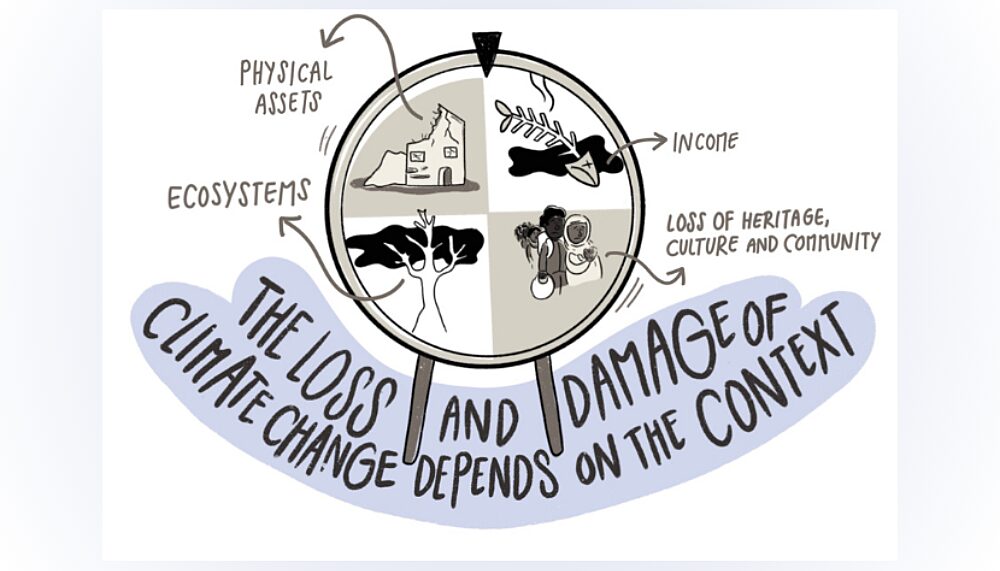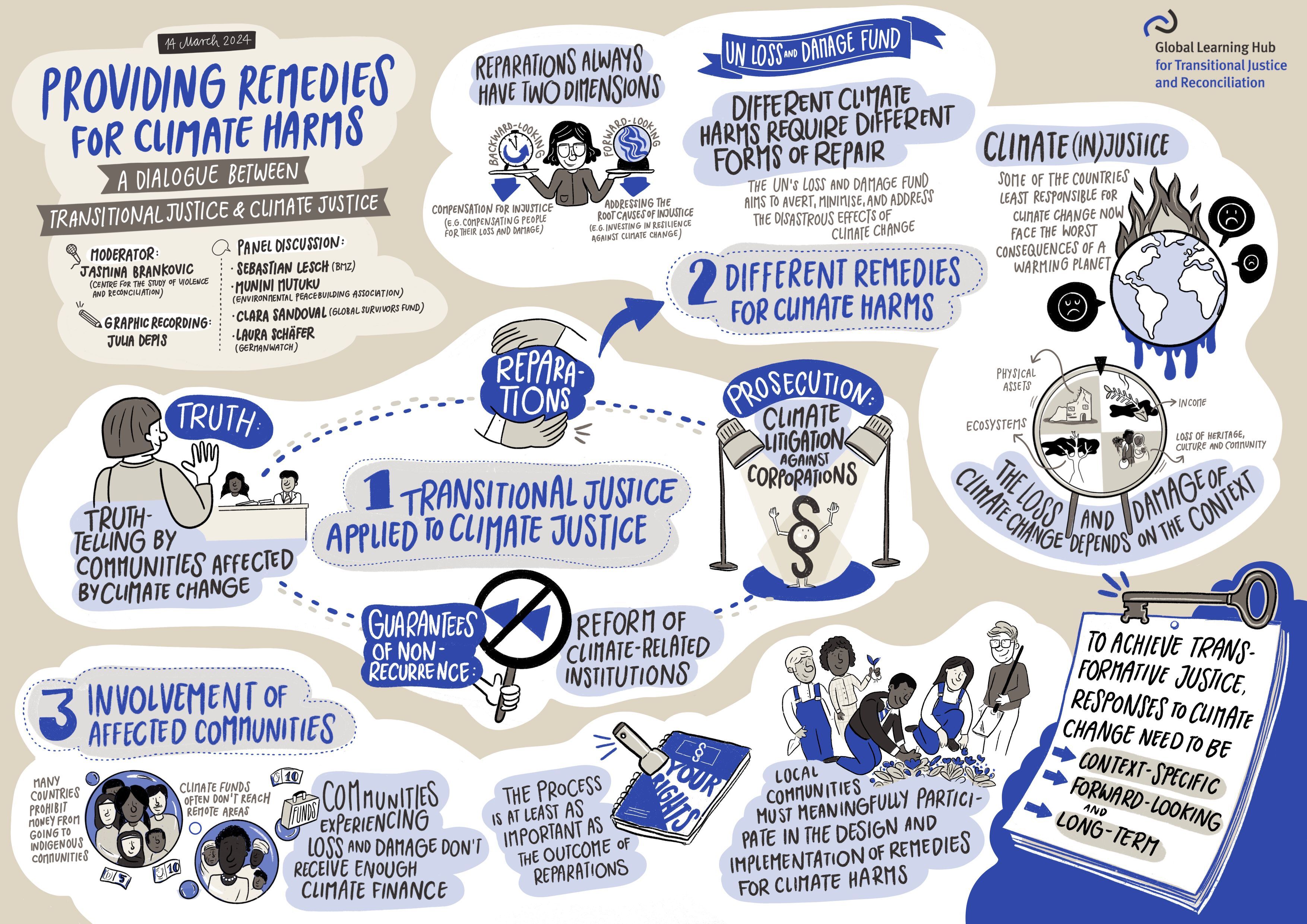FEATURE | 28 Mar 2024
How can the harms caused by climate change be addressed?
A dialogue between transitional justice and climate justice

During our third dialogue event, we discussed the challenges and opportunities of providing remedies for the loss and damage that climate change is causing.
The impacts of climate change are becoming increasingly visible, leaving behind a trail of devastation around the globe. From farmland destroyed by wildfires to displacement caused by rising sea levels, communities are acutely confronted with the loss and damage wrought by climate change. While mitigating greenhouse gas emissions continues to be essential to avert future impacts, affected populations need support in facing these challenges today. This is a matter of justice, considering that societies facing the worst impacts of climate change often bear the least responsibility for historical greenhouse gas emissions.
How can the harm caused by climate change be remedied in a way that leaves communities better off for the future? In the past decades, the field of transitional justice has gained experience with how reparations can support victims of violence and contribute to transformative change. On 14 March 2024, we co-organised an event with the Working Group on Peace and Development (FriEnt) and the Centre for the Study of Violence and Reconciliation (CSVR) in the framework of our Global Learning Hub for Transitional Justice and Reconciliation. Jasmina Brankovic (CSVR) highlighted the relevance of transitional justice for climate change at the outset, arguing that “transitional justice offers ideas and practices for addressing harms done in the past, while building solidarity in the present to lay the groundwork for a better future with fewer harms”. Under her moderation, transitional justice and climate experts discussed the challenges and opportunities of providing remedies for climate-induced loss and damage.
Reparation beyond compensation
As the effects of climate change vary across communities, responses must take into account local circumstances. According to Munini Mutuku (Environmental Peacebuilding Association), transitional justice experience has shown that “the repair that we need to do within communities because of the loss they are experiencing needs to be context-specific”. Clara Sandoval (Global Survivors Fund) added that reparations need to go beyond restitution and address structural causes of inequality. “The principle could not be that to provide reparation all you need to do is bring the person back to a situation of poverty and exclusion”, Sandoval stated, arguing that reparations should have transformative effects on people’s livelihoods that leave them better off than before.
Sebastian Lesch (Federal Ministry for Economic Cooperation and Development) also emphasised that remedies for loss and damage should be transformative, stating that “we want to build something better than the status quo”. Lesch mentioned the example of the aftermath of a flood, where rebuilding houses in the same spot as before could risk failing to adapt, in a forward-looking manner, to the realities of climate change. The German government therefore believes that institutions like the UN’s Loss and Damage Fund, which aims to provide financial assistance to those impacted by the effects of climate change, should invest in resilience when distributing climate finance.
Involving local communities
While recognising the establishment of the UN’s Loss and Damage Fund as an important step for achieving climate justice, Laura Schäfer (Germanwatch) highlighted that more money needs to reach affected communities. Currently less than two percent of global climate finance goes to small farmers and indigenous communities in developing countries. “There are no obligations for countries to pay into this fund or in general to provide funding for loss and damage” Schäfer added. She also pointed out that affected populations face barriers in participating in the decisions over how climate finance is used, such as lacking information and language barriers.
To be effective, climate finance mechanisms like the Loss and Damage Fund should ensure that local communities can meaningfully participate in them. Sandoval stated that transitional justice experiences have shown that affected communities “need to be given governance powers over decisions, because victims and communities know best what they need”. Mutuku added that community involvement furthermore ensures that any measures that are implemented to fight climate change are sustainable in the long run. The German government, asserted Lesch, will thus advocate for the involvement of local communities and civil society in the Loss and Damage Fund.
Despite their different areas of work, the transitional justice and the climate community have a lot to learn from each other. In view of the urgency of the climate crisis and the need to provide context-specific and forward-looking justice to its victims, more such dialogue is urgently needed.
You can download the graphic recording about the event here. Learn more about our Global Learning Hub for Transitional Justice and Reconciliation here.
Media contact
You can reach the press team at:
+49 (0) 177 7052758
email hidden; JavaScript is required



